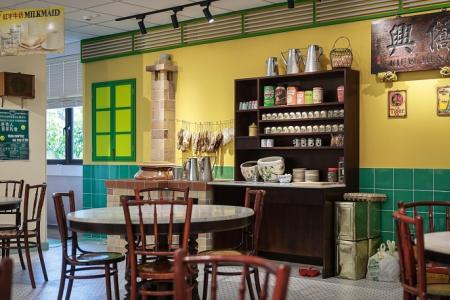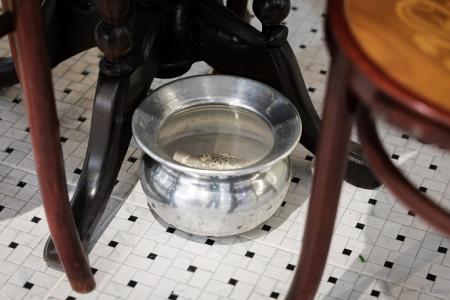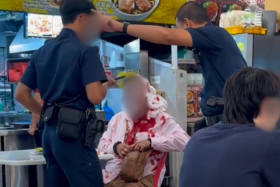New heritage gallery celebrates coffee shop culture
Sock filters for straining coffee, ceramic cups and saucers with simple matching floral designs, and vintage soft drink glass bottles with nostalgic charm.
These are a few of the nearly 3,000 artefacts and photographs going on show in a new heritage gallery highlighting the evolution of Singapore’s coffee shop culture.
The Singapore Coffee Shop Heritage Gallery is a gift from the Foochow Coffee Restaurant and Bar Merchants Association to the nation for her 60th birthday in 2025.
Built at a cost of about $600,000, the permanent gallery, which spans approximately 4,900 sq ft, will be free for the public to visit from Dec 2. It is located on Level 4 of the Foochow Building at 21 Tyrwhitt Road, and open from 10am to 5pm on weekdays.
The association welcomes contributions of coffee shop artefacts from organisations and the public.
When asked what the motivation behind the gallery was, Mr Hong Poh Hin, 76, chairman of the association, said: “Singapore’s coffee shops have grown and thrived with the nation, and... have become part of Singaporeans’ lives.”
The association, whose history can be traced back to 1921, has over 300 members, who own more than 400 coffee shops here.
Singapore’s coffee shops began over a century ago during the British colonial period. In the early days, hawkers operated from wooden carts. Over time, some rented shop spaces that shielded them from the sun and rain. They were mostly run by Chinese immigrants from Hainan and Fuzhou. By the 1950s, there were over 2,000 coffee shops across Singapore.
From the 1960s to 1980s, the Singapore government implemented policies that transformed the scene. Street hawkers were not allowed to set up stalls on the streets. At the same time, urban redevelopment plans required many coffee shops in old shophouses to relocate to new housing estates. Owners of these coffee shops started renting out stalls to vendors selling a variety of food.
Today, according to Mr Hong, there are about 1,100 coffee shops and food court, of which over 700 are in HDB estates.
Besides serving the classic combination fare of coffee, soft-boiled eggs and kaya toast, and a variety of local food from different races, coffee shops have also welcomed Vietnamese, Thai and north-eastern Chinese cuisine to cater to evolving palates.
Said Mr Hong: “Coffee shops are a microcosm of Singapore society. The increasing variety shows we are an open and multicultural society.”
He added: “Coffee shops are not just for uncles and aunties, and will always be relevant to everyone. Young people these days don’t know how to cook. They eat out often, and coffee shops offer a good variety of budget-friendly meals.”
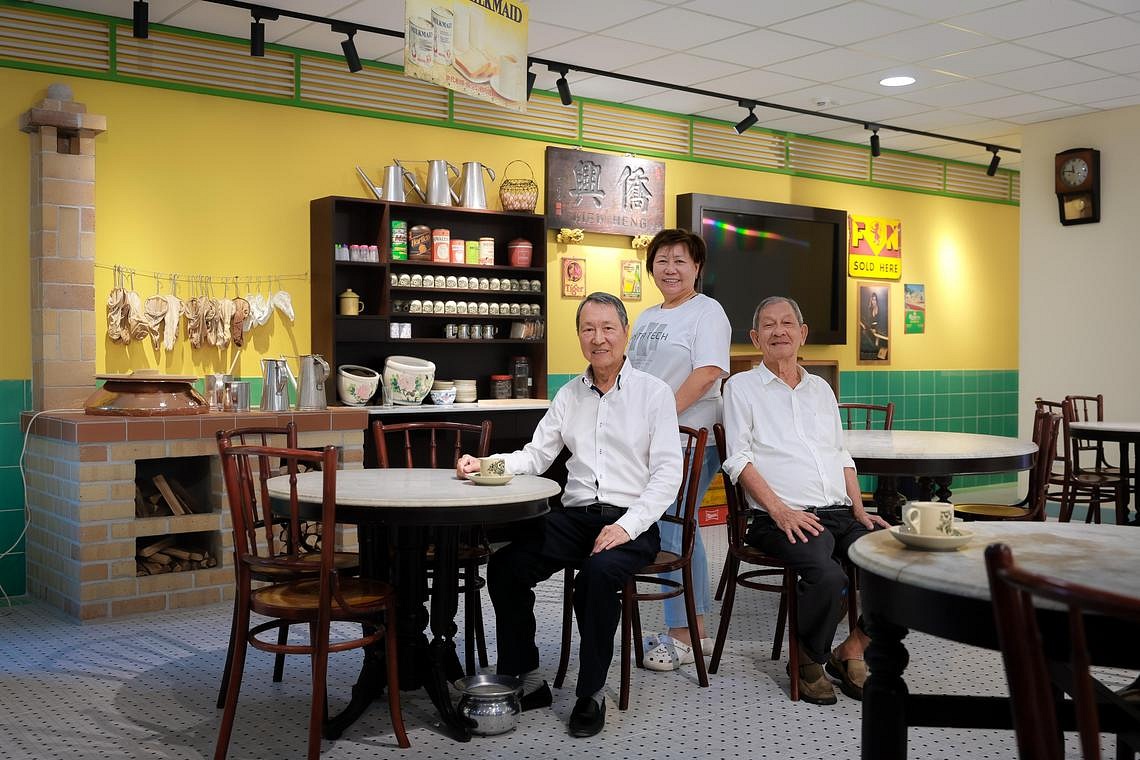
The Ministry of National Development and Housing Board rolled out a budget meal initiative in 2018. Since then, all new HDB rental coffee shops that are tendered out to operators must provide budget meals and a budget drink. These are meals priced affordably, compared with the average price of meals sold at nearby eating places.
Senior Minister of State for National Development Sim Ann told Parliament on Nov 13 that more than 440 rental and privately owned coffee shops are providing over 1,100 budget meals island-wide. She added that Singapore is on track to have all 374 rental HDB coffee shops offer budget meals by 2026.
Beyond food, coffee shops also serve as social hubs for emotional connection and “coffee-shop talk”, bringing communities closer together, said Mr Hong.
Ms Sherry Lim, 58, assistant honorary secretary of the Foochow Coffee Restaurant and Bar Merchants Association, said coffee shops also provide employment for many older workers. Approximately 30 per cent of coffee shop workers in various roles are aged 60 and above.
While it is important to respect heritage, coffee shops also need to move with the times, she said. Some have adopted technology such as digital ordering systems, automated food preparation and coffee brew machines, to address manpower shortage and increase efficiency.
However, coffee shops will remain cherished social hubs, she added.
“Even if a coffee shop (goes) fully automated one day, it will still be a community node where people congregate.”
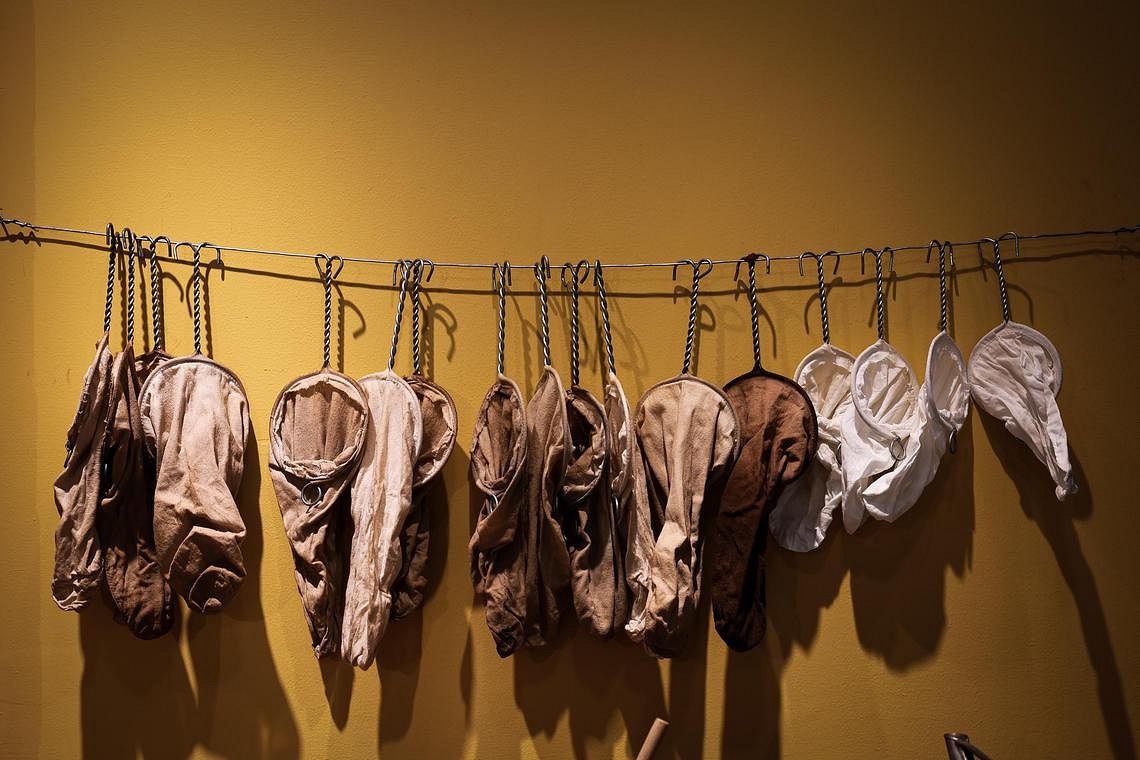
Get The New Paper on your phone with the free TNP app. Download from the Apple App Store or Google Play Store now

